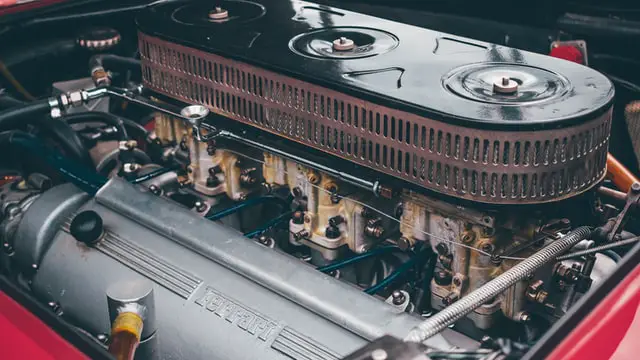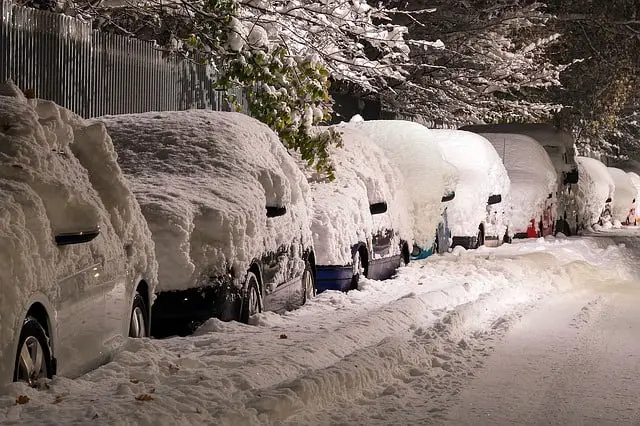Last Updated on January 22, 2025 by Nate Schnell
The engine’s air filter is a vital component that requires periodic replacement to ensure your car operates efficiently. Most manufacturers recommend changing the air filter every 12,000 to 30,000 miles, although some vehicles can go up to 40,000 miles depending on their design. It’s always best to consult your car’s manual for the specific maintenance schedule tailored to your vehicle.
The environment where you drive also affects the lifespan of the air filter. Frequent stop-and-go driving, dusty roads, or areas with heavy air pollution can shorten the time between replacements. Even if the manufacturer recommends a set interval, you may need to change the filter more often under such conditions. Regularly replacing the air filter can help prolong engine life and improve fuel efficiency.
When to Replace the Engine Air Filter
Knowing when to replace your air filter can prevent unnecessary wear and tear on your engine. Replacing the filter too soon wastes a perfectly good component, while waiting too long can harm your engine by allowing debris to enter the combustion chamber. A dirty filter restricts airflow, causing the engine to work harder and reducing its efficiency.
The best practice is to inspect your air filter during routine maintenance, such as oil changes. If you’re unsure when to change it, your car’s manual or an experienced mechanic can provide guidance. However, in many modern vehicles, onboard sensors will alert you when the filter needs replacing, making it easier to stay on top of maintenance.
Signs of a Dirty Air Filter
While following a replacement schedule is ideal, certain signs indicate it’s time to replace your air filter. One of the first indications is a noticeable drop in fuel efficiency. A clogged air filter restricts airflow to the engine, forcing it to work harder and consume more fuel. If you’ve noticed you’re filling up more frequently than usual, the air filter might be the culprit.
Modern vehicles often include dashboard alerts for a dirty air filter. This warning eliminates guesswork and ensures timely replacement. Another telltale sign is black smoke coming from the exhaust. Excess fuel usage caused by a clogged air filter can result in unburned fuel deposits, which produce dark exhaust smoke. Along with the smoke, you may notice a strong, unpleasant odor.
Starting problems can also point to a clogged air filter. Restricted airflow can disrupt the combustion process, making it harder for your car to start. If you experience stalling during ignition, it’s worth inspecting the air filter. Consistently replacing the filter prevents these issues and keeps your engine running smoothly.
Why Driving With a Dirty Air Filter Is Risky
Driving with a clogged or dirty air filter can have long-term consequences for your engine. Without adequate filtration, dirt, dust, and debris can enter the engine, causing internal damage. Over time, this can lead to wear on the combustion chamber and fuel lines, resulting in costly repairs.
Ignoring a dirty air filter also reduces your vehicle’s performance. Restricted airflow decreases fuel efficiency and increases emissions, which isn’t just bad for your wallet but also for the environment. For these reasons, replacing the air filter promptly is essential.
How to Replace an Engine Air Filter
Replacing an air filter is a straightforward process, but it requires attention to detail. Begin by consulting your car’s manual to locate the air filter housing, usually found near the engine. Once you’ve accessed the filter, remove it and inspect its condition. A dirty filter will appear dark and clogged with debris, whereas a clean filter is typically white or light-colored.
If the filter needs replacing, ensure you purchase the correct type for your vehicle. Gently place the new filter into the housing, ensuring it’s seated correctly, and reassemble the housing. Regularly replacing the filter will keep your engine running efficiently and extend its lifespan.
Final Thoughts
The engine air filter plays a crucial role in your car’s performance and longevity. Regular inspection and replacement based on your driving conditions and manufacturer recommendations are key to maintaining a healthy engine. Whether you follow a set schedule or look for signs like reduced fuel efficiency, dashboard alerts, or black smoke, staying proactive about air filter maintenance will save you time and money in the long run.



